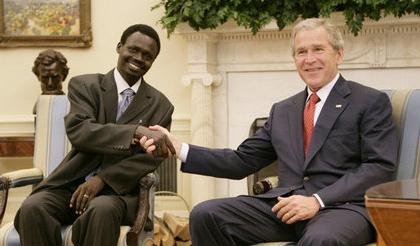In a significant development amid escalating tensions in Sudan, Minawi, a prominent figure in the Sudan Liberation Movement (SLM), expressed his concerns on not being informed about the Sudanese army’s new strategy aimed at clearing Khartoum. During a recent statement, Minawi emphasized the importance of communication among the various factions involved in the ongoing conflict, suggesting that transparency is crucial for fostering stability in the region. As Sudan grapples with political uncertainty and military confrontations, this revelation raises questions about the coordination and intentions of the country’s armed forces and their approach to the capital, Khartoum. This article delves into the implications of Minawi’s statement and the potential impact on Sudan’s tumultuous landscape.
Minawi Expresses Concerns Over Lack of Communication Regarding Military Operations in Khartoum
The leader of the Sudan Liberation Movement (SLM), Minawi, has raised urgent concerns regarding the apparent shortcomings in communication between various military factions in the ongoing conflict in Khartoum. He emphasized that his group has not been formally informed about the Sudanese army’s strategic plans aimed at clearing the city of insurgents. This lack of notification has raised questions about coordination efforts among military stakeholders and the potential implications of unilateral operations on civilian safety and the broader stability of the region.
Minawi articulated that effective communication is crucial for ensuring a united front against the ongoing insurgency while safeguarding the interests of the civilian population caught in the crossfire. He highlighted several key points regarding this communication gap:
- Coordination Issues: Without proper updates, factions may inadvertently clash, exacerbating the conflict.
- Civilian Impact: The absence of shared information jeopardizes efforts to protect innocent lives during military operations.
- Strategic Planning: Cooperation is essential for developing coherent strategies that address the root causes of unrest in the capital.
Urgent Need for Transparency and Dialogue Amidst Rising Tensions in Sudan
Recent statements from Sudanese Liberation Movement (SLM) leader Minawi have highlighted the alarming lack of communication between military authorities and local factions as tensions escalate in Khartoum. Minawi revealed that no prior notification was given regarding the army’s plans to clear the city, raising questions about the legitimacy and implications of such military actions. This lack of dialogue not only deepens mistrust but also hampers potential peace negotiations necessary for lasting stability. Observers now urge for an immediate commitment to transparency, recommending that both the Sudanese army and rebel leaders engage in direct talks to address the ongoing unrest.
The situation is exacerbated by the risk of civilian casualties and wider conflict, making a clear communication strategy imperative. Key stakeholders, including community leaders and international actors, must advocate for an open forum to discuss the future of governance and security in Sudan. A multi-faceted approach could involve:
- Regular briefings by the army to update on operational plans.
- Inclusive meetings with all relevant parties to foster cooperation.
- Engagement of civil society to ensure a voice for the people in decision-making processes.
The international community’s role in facilitating these discussions could prove crucial in navigating the current crisis and fostering a peaceful resolution for all parties involved.
Recommendations for Fostering Trust and Stability in the Sudanese Military-Political Landscape
In the context of recent developments that have left many Sudanese citizens uneasy about the stability of their military-political landscape, a series of recommendations can be crucial for fostering trust among various stakeholders. Engaging in transparent dialogue between military leaders and civilian entities is essential, ensuring that decisions affecting the populace are communicated clearly. This can help mitigate misunderstandings that often lead to unrest. Additionally, the establishment of inclusive governance structures that represent various ethnic and political groups will strengthen legitimacy and enhance public confidence in government initiatives.
Furthermore, it is vital to promote confidence-building measures among military factions and civilian communities. Initiatives such as joint community forums and regular briefings can facilitate open lines of communication, allowing grievances to be voiced and addressed promptly. The potential implementation of independent oversight mechanisms could also play a significant role in monitoring military actions and ensuring accountability. These strategies combined may significantly contribute to a more stable political environment, paving the way for lasting peace in Sudan.
Insights and Conclusions
In conclusion, the recent statements by SLM’s Minawi highlight a growing concern regarding the lack of communication and coordination between various factions amidst the ongoing conflict in Sudan. As tensions rise in Khartoum, the absence of notification regarding military plans underscores the complexities of the political landscape in the country. The implications of such actions could further exacerbate the humanitarian crisis and challenge efforts for peace and stability. As developments unfold, it remains crucial for all stakeholders to prioritize dialogue and transparency to mitigate further conflict and work towards a resolution that serves the interests of the Sudanese people.
